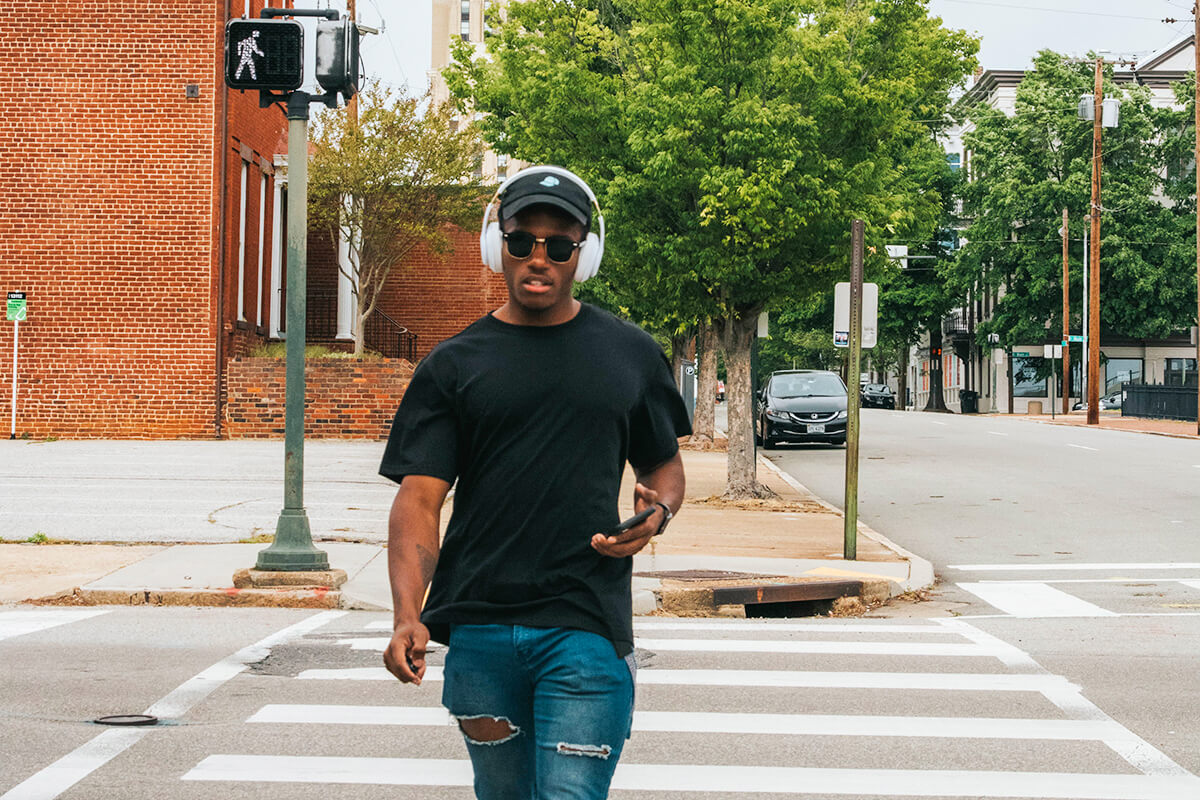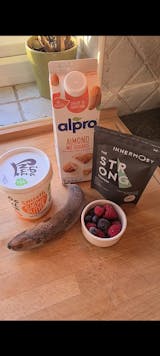Podcasts are the new Netflix. Everyone you know seems to be either listening to them or making them. In 2018, Apple estimated that there were over 550,000 podcasts out there. But this year, that number was raised to over 1 million. The people love their podcasts.
And we can’t blame them. Whether it’s on the commute, on a walk, or relaxing at home, podcasts are an easy way to unwind while learning something new at the same time.
Innermost's favourite podcast genre
One particular genre of podcast we’ve been loving at the moment is, of course, health and wellbeing. From food and fitness, to sleep and mental health, there are endless options for educating yourself around the wellness trend and hearing a range of different opinions and views. With that in mind, we’ve put together a list of our current faves just for you.
Happy listening!
The Food Medic
Hosted by Dr. Hazel Wallace, a renowned medic, blogger and personal trainer, the beauty of The Food Medic podcast is that you'll hear from the very best of nutritionists, trainers and experts in a range of fields from nutrition to exercise and everything in between.
The aim of the podcast is simple, to cut through the noise when it comes to the facts around health and wellness. It's no surprise it's one of our favourites, is it?
The Diary Of A CEO With Steven Bartlett
Entrepreneur Steven Bartlett hosts a weekly podcast to inject insights from his learnings, business ventures and life experiences to give listeners a behind-the-scenes look into his life, and that of his celebrity and high-profile guests. Unscripted and full of nuggets of wisdom, if you need a bit of inspiration, The Diary Of A CEO podcast is a definite go-to for us.
Feel Better, Live More with Dr Rangan Chatterjee
On a journey similar to our own, Dr Rangan Chatterjee is on a mission to simplify the health and wellness world. Similar to The Food Medic, Dr Chatterjee welcomes a range of guests to discuss the latest in the health and wellness world. You may recognise him from BBC1's programme "Doctor In The House", and now it's time to welcome him on your podcast channel of choice.
Happy Place
Radio DJ and TV presenter Fearne Cotton’s podcast Happy Place digs deep into one of the most-searched and talked about issues in society today: happiness. Whether we’re trying to pursue it or define it, the idea of happiness has been a hot topic in recent years. And it’s for good reason, what with our lives all becoming increasingly more busy and stressful. Fearne interviews someone different on each episode about their own experiences with mental health and pursuing happiness, as well as getting candid and real about her own, making for conversations that are simultaneously revealing, vulnerable, and inspiring. Previous guests have included Stephen Fry, Alicia Keys, Joe Wicks, Ellie Goulding and Chessie King.
Deliciously Ella
After becoming extremely sick with an autoimmune disease while at university, Ella Mills (previously Ella Woodward) decided to take her health into her own hands by curing her sickness through making changes to her diet. Having discovered that a plant-based diet could make such a dramatic difference to her quality of life, Deliciously Ella was born, and has since turned into a hugely successful business with recipe books, food products, a podcast and more. The Deliciously Ella podcast sees Ella and her husband Matt, the CEO of the company, interview an inspiring range of people within the health and wellness industry, where they debunk common myths, de-stigmatise mental health, and discuss how to make positive changes in your own personal wellness journey. Featuring an impressive roster of guests across health, wellness and lifestyle, we love this one for educating us about how body and mind are always interconnected.
iWeigh
Previously a Radio 1 DJ and now an actress and activist, Jameela Jamil has become one of the biggest presences on the internet thanks to her outspoken and fearless approach towards tackling societal problems like body image and wider women’s issues. Her empowering form of activism has culminated in iWeigh, a podcast that “challenges society’s definition of worth through weight by asking different thought-leaders, performers, activists, influencers, and friends about how they are working through their past shames to find where their value truly lies”. Guests have ranged from trans activist Munroe Bergdorf, and singer Demi Lovato, to actress Reese Witherspoon and actor Matt McGorry. At Innermost, we’re all about an informed, healthy and balanced approach to weight, so we can’t recommend this one enough.
Sleep With Me
It’s not what you think. Sleep With Me is a podcast all about trying to get you to go to sleep. Hosted by Drew Ackerman, each episode takes the form of a bedtime story. But a boring one. Yes, really. The idea is that each ‘story’ is interesting enough to distract you from the other things on your mind that might be worrying you or keeping you awake, while also being boring enough to send you to sleep. Genius? We think so. The aim of the game is for you not to hear the end of the story because, that’s right, you’ll be sound asleep.
Work, Play, Love
Work, Play, Love is hosted by another married couple who are also all about health and wellness. Lauren Fleshman is an author, marathon runner and coach, while her husband Jesse Thomas is a triathlete and Iron Man competitor (serious power couple, right?). On this well-loved podcast, Lauren and Jesse take the opportunity to talk about the balancing act that's their life. Between raising their two children, and dealing with work, training, social lives and more, this is the perfect podcast for anyone leading a busy lifestyle wondering how you can get it all done. Topics include staying motivated without a coach, building a healthy relationship with food, building confidence, and racing while grieving. Whatever you're worried about juggling, they've got it covered.
Well Far
Hosted by Women’s Health’s Digital Editor, Amy Lane, Well Far is a podcast all about running. But even if you aren’t a runner, don’t scroll away just yet. If you’re thinking about getting started, or just haven’t run in a while, this could be exactly the thing to accompany you while you get back out there. Each episode of Amy’s podcast contains expert running tips as well as a free guided yoga flow to stretch it out post-run. Amy discusses everything from hill sprints, to how to come back from injury, to pre and post-natal running tips, so whether beginner or pro and whatever your goal, don’t run without it.
So those are our favourite podcasts all about health and wellbeing. Let us know if you’ve listened to any of them and what you think, or hit us up with any other suggestions you have that we may have missed. We can’t wait to hear.
And if you're looking for more suggestions, click here to check out what we got up to in June with books, films, and more.
























